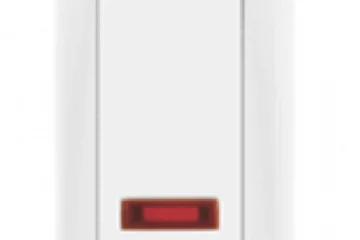Protecting sensitive documents is critical in today’s data-driven world. Whether for businesses, law firms, or individuals, knowing the most secure method for handling confidential papers ensures privacy and prevents costly leaks. Let’s explore effective strategies that safeguard information while maintaining trust.
The Most Secure Method for Handling Confidential Papers
When it comes to safeguarding sensitive files, physical and digital strategies must work hand in hand. The most secure method involves a combination of controlled storage, restricted access, and proper disposal. Businesses and individuals must adopt security-first practices to prevent unauthorized access and ensure compliance with privacy laws.
Why Secure Handling of Confidential Papers Matters
Confidential documents often contain financial details, medical records, or legal agreements. If misplaced or mishandled, they can lead to identity theft, lawsuits, or reputational harm. Secure handling is not only a safety measure but also a legal responsibility in many industries.
Secure Storage Solutions in Offices
Storing confidential papers in a locked filing cabinet or safe is one of the most effective physical methods. Offices can further strengthen security by limiting access to only authorized employees. Fireproof and waterproof safes add an extra layer of protection against unexpected disasters.
Digital Security for Confidential Paperwork
Even paper documents often have digital counterparts. Scanning and encrypting files ensures safe storage in secure cloud platforms. Using multi-factor authentication and access logs helps organizations track who interacts with sensitive records.
Handling Confidential Papers in Law Firms
Law firms deal with highly sensitive cases. They often store case files in secure rooms with restricted entry. Digital case records are usually encrypted and backed up in secure servers. Lawyers also use secure shredding services to dispose of outdated files.
Confidential Document Management in Healthcare
Hospitals and clinics must follow HIPAA regulations when handling patient files. Secure file storage, restricted access, and digital record encryption are essential. Staff training plays a key role in preventing accidental exposure of sensitive information.
Financial Institutions and Paper Security
Banks and financial service providers must protect account details, loan records, and investment files. Secure vaults and digital encryption are combined with routine audits to ensure compliance. These institutions also use advanced monitoring systems to detect unauthorized access attempts.
Confidential Papers in Government Agencies
Government offices often handle classified documents. To secure them, agencies use advanced security protocols, including biometric access controls and encrypted storage systems. Disposal of outdated files usually involves professional shredding and incineration services.
How to Dispose of Confidential Papers Safely
Improper disposal is one of the biggest risks to document security. Businesses should always use professional shredding services for sensitive records. At home, a cross-cut shredder provides effective protection against identity theft. The term Shred Documents is more than advice—it’s a necessity for preventing leaks.
Local Considerations for Secure Paper Handling
The best security practices may vary depending on local regulations. For example, certain states and countries require compliance with strict data protection laws. Partnering with trusted local shredding or storage providers ensures that your practices meet both security and legal requirements.
FAQs
What is the safest way to store confidential papers?
The safest method combines locked storage for physical documents and encrypted systems for digital files.
How do law firms keep sensitive files secure?
They use restricted access storage rooms, encryption for digital records, and professional shredding services for disposal.
Why is shredding documents important?
Shredding prevents unauthorized individuals from accessing sensitive data once papers are no longer needed.
Are cloud services safe for confidential documents?
Yes, if they use encryption, multi-factor authentication, and comply with data protection regulations.
How do healthcare facilities secure patient records?
They rely on encrypted digital storage, restricted access, and strict staff training to prevent accidental exposure.
Can home users protect confidential papers effectively?
Yes, by using a personal safe for storage and a cross-cut shredder for disposal.
Conclusion
The most secure method for handling confidential papers involves a mix of careful storage, controlled access, and safe disposal. Whether in offices, law firms, healthcare, or financial institutions, following strict document management practices ensures both legal compliance and trust. By adopting secure handling strategies today, you protect sensitive information and safeguard your future.


